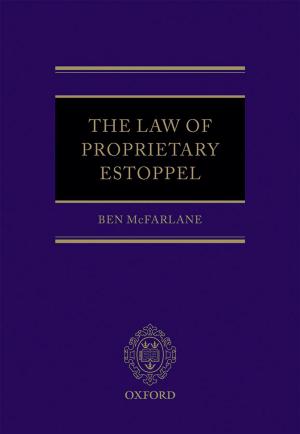The Actual and the Possible
Modality and Metaphysics in Modern Philosophy
Nonfiction, Religion & Spirituality, Philosophy, History, Criticism, & Surveys, Metaphysics| Author: | ISBN: | 9780191089749 | |
| Publisher: | OUP Oxford | Publication: | November 24, 2017 |
| Imprint: | OUP Oxford | Language: | English |
| Author: | |
| ISBN: | 9780191089749 |
| Publisher: | OUP Oxford |
| Publication: | November 24, 2017 |
| Imprint: | OUP Oxford |
| Language: | English |
The Actual and the Possible presents new essays by leading specialists on modality and the metaphysics of modality in the history of modern philosophy from the seventeenth to the twentieth centuries. It revisits key moments in the history of modern modal doctrines, and illuminates lesser-known moments of that history. The ultimate purpose of this historical approach is to contextualise and even to offer some alternatives to dominant positions within the contemporary philosophy of modality. Hence the volume contains not only new scholarship on the early-modern doctrines of Baruch Spinoza, G. W. F. Leibniz, Christian Wolff and Immanuel Kant, but also work relating to less familiar nineteenth-century thinkers such as Alexius Meinong and Jan Lukasiewicz, together with essays on celebrated nineteenth- and twentieth-century thinkers such as G. W. F. Hegel, Martin Heidegger and Bertrand Russell, whose modal doctrines have not previously garnered the attention they deserve. The volume thus covers a variety of traditions, and its historical range extends to the end of the twentieth century, addressing the legacy of W. V. Quine's critique of modality within recent analytic philosophy.
The Actual and the Possible presents new essays by leading specialists on modality and the metaphysics of modality in the history of modern philosophy from the seventeenth to the twentieth centuries. It revisits key moments in the history of modern modal doctrines, and illuminates lesser-known moments of that history. The ultimate purpose of this historical approach is to contextualise and even to offer some alternatives to dominant positions within the contemporary philosophy of modality. Hence the volume contains not only new scholarship on the early-modern doctrines of Baruch Spinoza, G. W. F. Leibniz, Christian Wolff and Immanuel Kant, but also work relating to less familiar nineteenth-century thinkers such as Alexius Meinong and Jan Lukasiewicz, together with essays on celebrated nineteenth- and twentieth-century thinkers such as G. W. F. Hegel, Martin Heidegger and Bertrand Russell, whose modal doctrines have not previously garnered the attention they deserve. The volume thus covers a variety of traditions, and its historical range extends to the end of the twentieth century, addressing the legacy of W. V. Quine's critique of modality within recent analytic philosophy.















